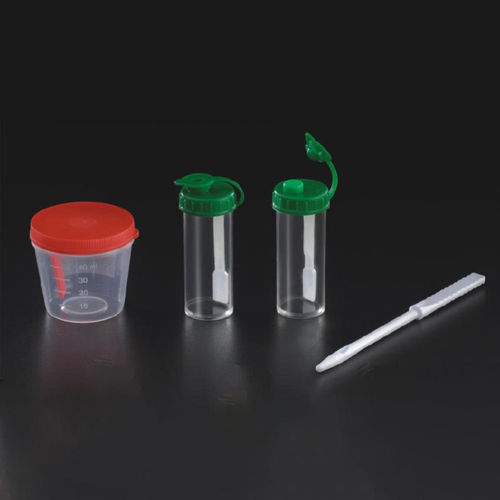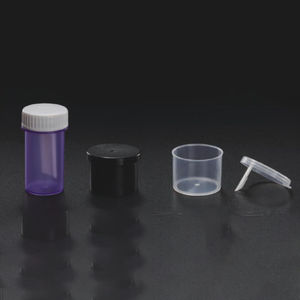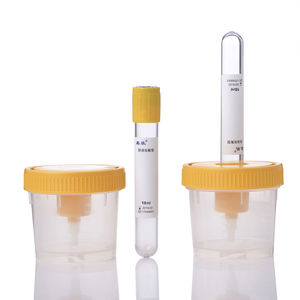
- Company
- Products
- Catalogs
- News & Trends
- Exhibitions
Transport sample container G1 seriesstoragelaboratorystool

Add to favorites
Compare this product
Characteristics
- Applications
- storage, transport, laboratory
- Sample type
- stool, microbiology
- Function
- safe
- Other characteristics
- with screw cap
- Volume
40 ml
(1.35 US fl oz)
Description
A stool container is an essential tool for hygienic and efficient sample collection and storage in clinical diagnostics and microbiology labs. These specialized containers provide a secure and reliable means of transporting and preserving stool samples for further analysis. With their features specifically designed to prevent contamination and maintain sample integrity, stool containers play a crucial role in accurate diagnoses and research. In this article, we will delve into the importance of using a stool container, discussing its advantages, features, and applications in various laboratory settings.
In clinical diagnostics and microbiology labs, proper sample collection and storage are vital for accurate diagnoses and research findings. A stool container, specially designed for the collection and transport of stool samples, is an indispensable tool for maintaining hygiene, preserving the integrity of samples, and streamlining laboratory processes.
One of the key features of a stool container is its ability to prevent contamination and leakage. These containers are typically made from durable, leak-proof materials that ensure the safe transportation of stool samples. The secure lids and tight seals of stool containers prevent any cross-contamination, safeguarding the integrity of the sample and maintaining accurate test results.
Hygiene is another critical aspect addressed by a stool container. The containers are designed for easy and sanitary sample collection, with features such as screw-top lids or snap-on covers to minimize contact with the sample.
VIDEO
Catalogs
No catalogs are available for this product.
See all of HWTAi‘s catalogsRelated Searches
- Container
- Sample box
- Rack
- Waste container
- Transport container
- Laboratory container
- Storage rack
- Storage sample box
- Sample container with cap
- Transport sample box
- Polypropylene sample box
- Safe container
- Urine sample box
- Benchtop rack
- Sample container with screw cap
- Polypropylene container
- Laboratory sample box
- Polyethylene container
- Biological sample box
- Polyethylene sample box
*Prices are pre-tax. They exclude delivery charges and customs duties and do not include additional charges for installation or activation options. Prices are indicative only and may vary by country, with changes to the cost of raw materials and exchange rates.






